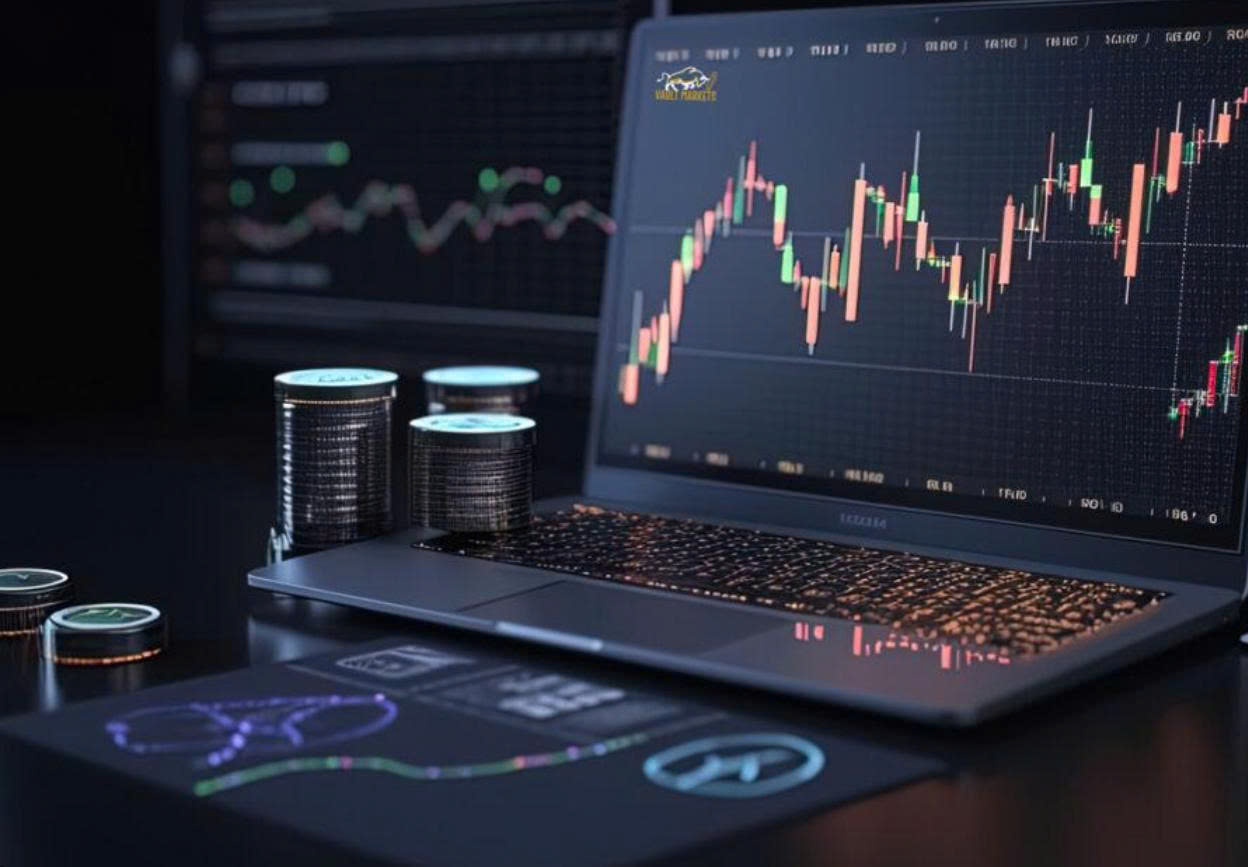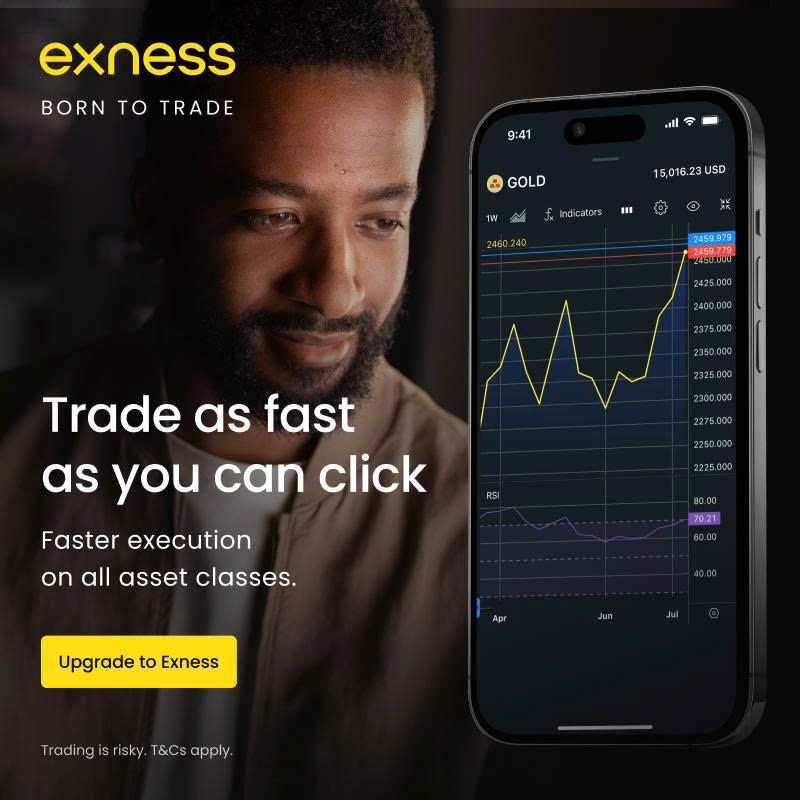
8 minute read
How to Open Forex Account in Dubai: A Step-by-Step Guide
Dubai, a global financial hub, is an attractive destination for forex trading due to its robust economy, strategic location, and investor-friendly regulations. With a growing interest in forex trading in the UAE, many beginners are eager to learn how to open forex account in Dubai. This comprehensive guide will walk you through the process, from understanding forex trading to choosing the right broker and complying with local regulations. Whether you’re a resident or an expatriate, this article provides actionable steps to start your forex trading journey in Dubai.
Top 4 Best Forex Brokers in Dubai
1️⃣ Exness: Open An Account or Visit Brokers 🏆
2️⃣ XM: Open An Account or Visit Brokers 💥
3️⃣ JustMarkets: Open An Account or Visit Brokers ✅
4️⃣ Quotex: Open An Account or Visit Brokers 🌐
What is Forex Trading?
Forex trading, or foreign exchange trading, involves buying and selling currencies to profit from fluctuations in their exchange rates. The forex market is the largest and most liquid financial market globally, with a daily trading volume exceeding $7 trillion. In Dubai, forex trading has gained popularity due to the city’s advanced financial infrastructure and access to global markets.
Before opening a forex account, it’s essential to understand the basics:
· Currency Pairs: Forex trading involves trading currency pairs, such as EUR/USD (Euro/US Dollar) or GBP/JPY (British Pound/Japanese Yen).
· Leverage: This allows traders to control larger positions with smaller capital, but it comes with higher risks.
· Pip: A pip is the smallest price movement in a currency pair, critical for calculating profits and losses.
· Broker: A forex broker is a platform or company that facilitates your trades.
With this foundation, let’s explore how to open a forex account in Dubai.
Why Choose Dubai for Forex Trading?
Dubai’s position as a financial powerhouse in the Middle East makes it an ideal location for forex trading. Here are some reasons why:
· Regulatory Framework: The Dubai Financial Services Authority (DFSA) and the Securities and Commodities Authority (SCA) regulate forex trading, ensuring a secure environment for traders.
· Tax Benefits: The UAE offers a tax-free environment, meaning you won’t pay capital gains tax on your forex profits.
· Access to Global Brokers: Dubai hosts many reputable international forex brokers, providing access to advanced trading platforms.
· Strategic Time Zone: Dubai’s time zone (GST) aligns well with major forex markets, allowing traders to capitalize on market hours in Europe, Asia, and the US.
Step-by-Step Guide to Opening a Forex Account in Dubai
Opening a forex account in Dubai is straightforward if you follow these steps carefully. Here’s a detailed roadmap:
Step 1: Educate Yourself About Forex Trading
Before diving into forex trading, invest time in learning the fundamentals. Understanding market dynamics, technical analysis, and risk management is crucial. Here are some ways to educate yourself:
· Online Courses: Platforms like Coursera, Udemy, or Babypips offer beginner-friendly forex trading courses.
· Books: Classics like Currency Trading for Dummies or Technical Analysis of the Financial Markets are great starting points.
· Demo Accounts: Most brokers offer demo accounts to practice trading without risking real money.
By building a strong knowledge base, you’ll make informed decisions when opening and managing your forex account.
Step 2: Choose a Reputable Forex Broker
Selecting a reliable broker is one of the most critical steps in opening a forex account in Dubai. Here’s what to consider when choosing a broker:
· Regulation: Ensure the broker is regulated by a reputable authority, such as the DFSA in Dubai, FCA (UK), ASIC (Australia), or CySEC (Cyprus). In the UAE, brokers regulated by the SCA or DFSA are preferred for local compliance.
· Trading Platform: Popular platforms like MetaTrader 4 (MT4), MetaTrader 5 (MT5), or cTrader offer user-friendly interfaces and advanced tools.
· Fees and Spreads: Compare spreads, commissions, and withdrawal fees. Low spreads are ideal for frequent traders.
· Account Types: Look for brokers offering account types suited to your experience level, such as micro, standard, or Islamic (swap-free) accounts.
· Customer Support: Opt for brokers with 24/5 customer support, preferably with local offices in Dubai.
Some popular brokers in Dubai include XM, FXTM, Pepperstone, and IG, all of which are regulated and offer competitive trading conditions.
Step 3: Understand UAE Forex Regulations
Forex trading in Dubai is regulated to protect investors and ensure market integrity. The DFSA oversees financial activities in the Dubai International Financial Centre (DIFC), while the SCA regulates brokers operating across the UAE. Key regulations include:
· Licensing: Brokers must hold a valid license from the DFSA or SCA to operate legally in Dubai.
· Client Fund Protection: Regulated brokers segregate client funds from company funds to ensure safety.
· Transparency: Brokers must provide clear information about fees, risks, and trading conditions.
Always verify a broker’s regulatory status before opening an account. You can check the DFSA or SCA websites for a list of licensed brokers.
Step 4: Prepare Required Documents
To open a forex account in Dubai, you’ll need to provide specific documents for identity verification and compliance with Know Your Customer (KYC) regulations. Commonly required documents include:
· Valid Identification: A copy of your passport, Emirates ID (for UAE residents), or driver’s license.
· Proof of Address: A recent utility bill, bank statement, or tenancy agreement showing your address in Dubai or the UAE.
· Proof of Income: Some brokers may request bank statements or salary slips to assess your financial capacity.
· Tax Identification Number: If applicable, provide your TIN or equivalent for tax purposes (though not typically required in the UAE due to its tax-free status).
Ensure all documents are up-to-date and meet the broker’s requirements to avoid delays in account approval.
Step 5: Open and Fund Your Forex Account
Once you’ve chosen a broker and gathered your documents, follow these steps to open your account:
· Visit the Broker’s Website: Go to the official website of your chosen broker and click on the “Open Account” or “Sign Up” button.
· Complete the Application Form: Provide personal details, including your name, email, phone number, and residency status.
· Submit Documents: Upload the required KYC documents for verification. This process typically takes 1–3 business days.
· Choose an Account Type: Select an account that suits your trading goals, such as a micro account for beginners or an Islamic account for Sharia-compliant trading.
Fund Your Account: Deposit funds using available payment methods, such as bank transfers, credit/debit cards, or e-wallets like Skrill or Neteller. Most brokers have a minimum deposit requirement, ranging from $50 to $500.

✅ Join Exness now! Open An Account or Visit Brokers 👈
Step 6: Download and Set Up a Trading Platform
After your account is approved and funded, download the broker’s trading platform (e.g., MT4 or MT5) on your computer or mobile device. Follow these steps:
· Log In: Use the credentials provided by the broker to access the platform.
· Customize Settings: Adjust charts, indicators, and trading preferences to suit your strategy.
· Practice with a Demo Account: If you’re a beginner, start with a demo account to test your skills before trading with real money.
Step 7: Develop a Trading Strategy
Successful forex trading requires a well-defined strategy. Consider these tips:
· Technical Analysis: Use tools like moving averages, RSI, or Fibonacci retracement to identify trading opportunities.
· Fundamental Analysis: Stay updated on economic events, such as interest rate changes or GDP reports, that impact currency prices.
· Risk Management: Never risk more than 1–2% of your account on a single trade. Use stop-loss orders to limit potential losses.
Step 8: Start Trading and Monitor Your Progress
Once your account is set up and you’ve practiced on a demo account, you’re ready to trade live. Start with small trades to gain confidence and monitor your performance regularly. Keep a trading journal to track your trades, analyze mistakes, and refine your strategy.
Tips for Successful Forex Trading in Dubai
To maximize your success in forex trading, follow these best practices:
· Stay Disciplined: Stick to your trading plan and avoid emotional decisions.
· Keep Learning: The forex market evolves constantly, so stay updated on trends and strategies.
· Use Risk Management Tools: Leverage stop-loss and take-profit orders to protect your capital.
· Diversify Your Portfolio: Avoid focusing on a single currency pair to spread your risk.
· Stay Informed: Follow financial news and market analysis from sources like Bloomberg, Reuters, or TradingView.
Common Mistakes to Avoid
Beginners often make mistakes that can lead to significant losses. Here are some pitfalls to avoid:
· Overleveraging: Using high leverage without understanding the risks can wipe out your account.
· Ignoring Risk Management: Failing to set stop-loss orders or risking too much per trade is a recipe for disaster.
· Chasing Losses: Avoid revenge trading after a loss; stick to your strategy.
· Choosing Unregulated Brokers: Always verify a broker’s regulatory status to avoid scams.
Islamic Forex Accounts in Dubai
For Muslim traders in Dubai, many brokers offer Islamic forex accounts that comply with Sharia law. These accounts are swap-free, meaning no interest is charged or earned on overnight positions. When choosing an Islamic account, ensure the broker is reputable and regulated by the DFSA or SCA.
Conclusion
Opening a forex account in Dubai is an exciting opportunity to tap into the world’s largest financial market. By educating yourself, choosing a regulated broker, complying with local regulations, and developing a solid trading strategy, you can set yourself up for success. Dubai’s investor-friendly environment, tax benefits, and access to global brokers make it an ideal location for forex trading.
Whether you’re a beginner or an experienced trader, take your time to research and practice before diving into live trading. With discipline and the right approach, forex trading in Dubai can be a rewarding venture.
✅ Join Exness now! Open An Account or Visit Brokers 👈
Read more:

